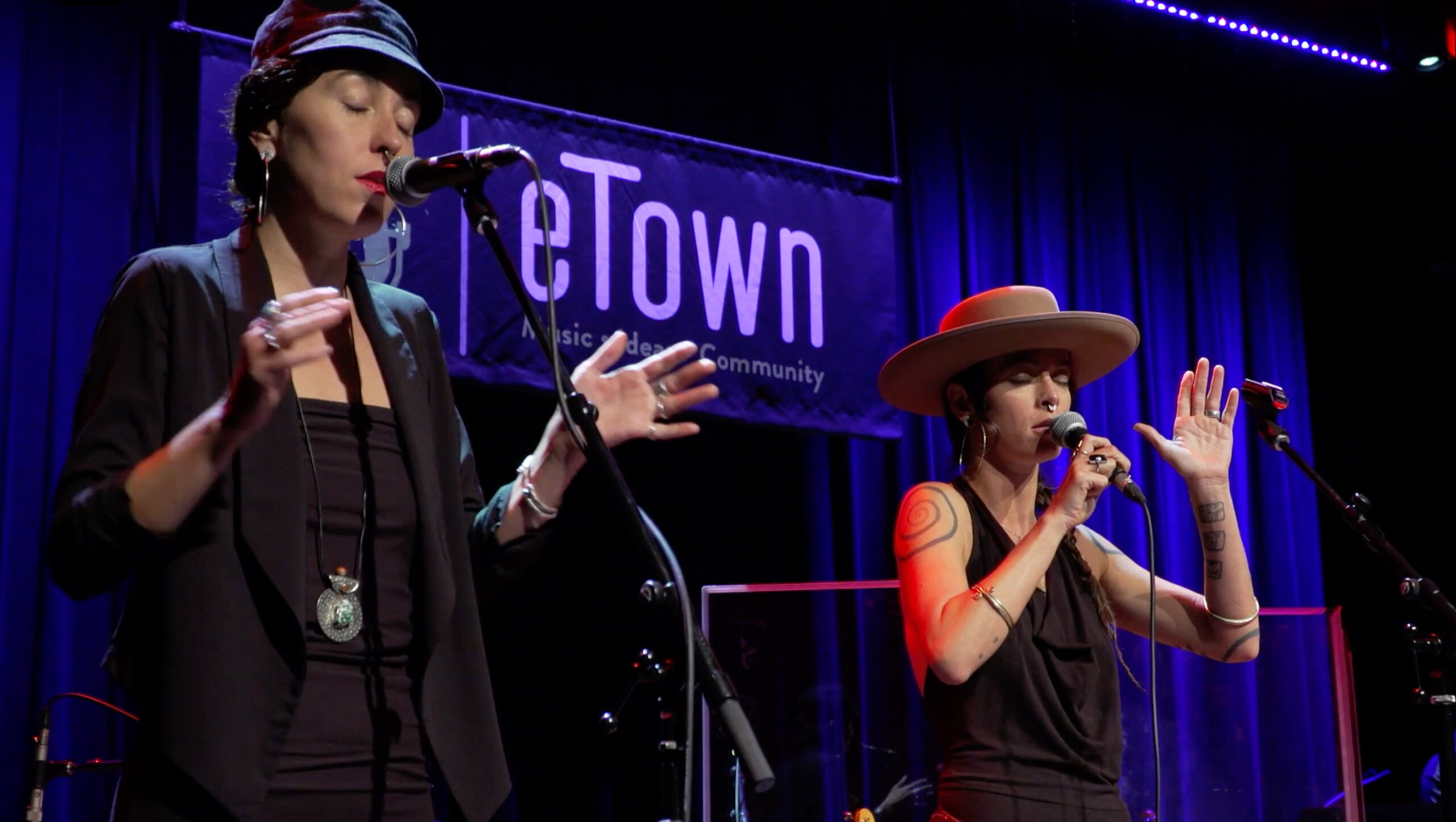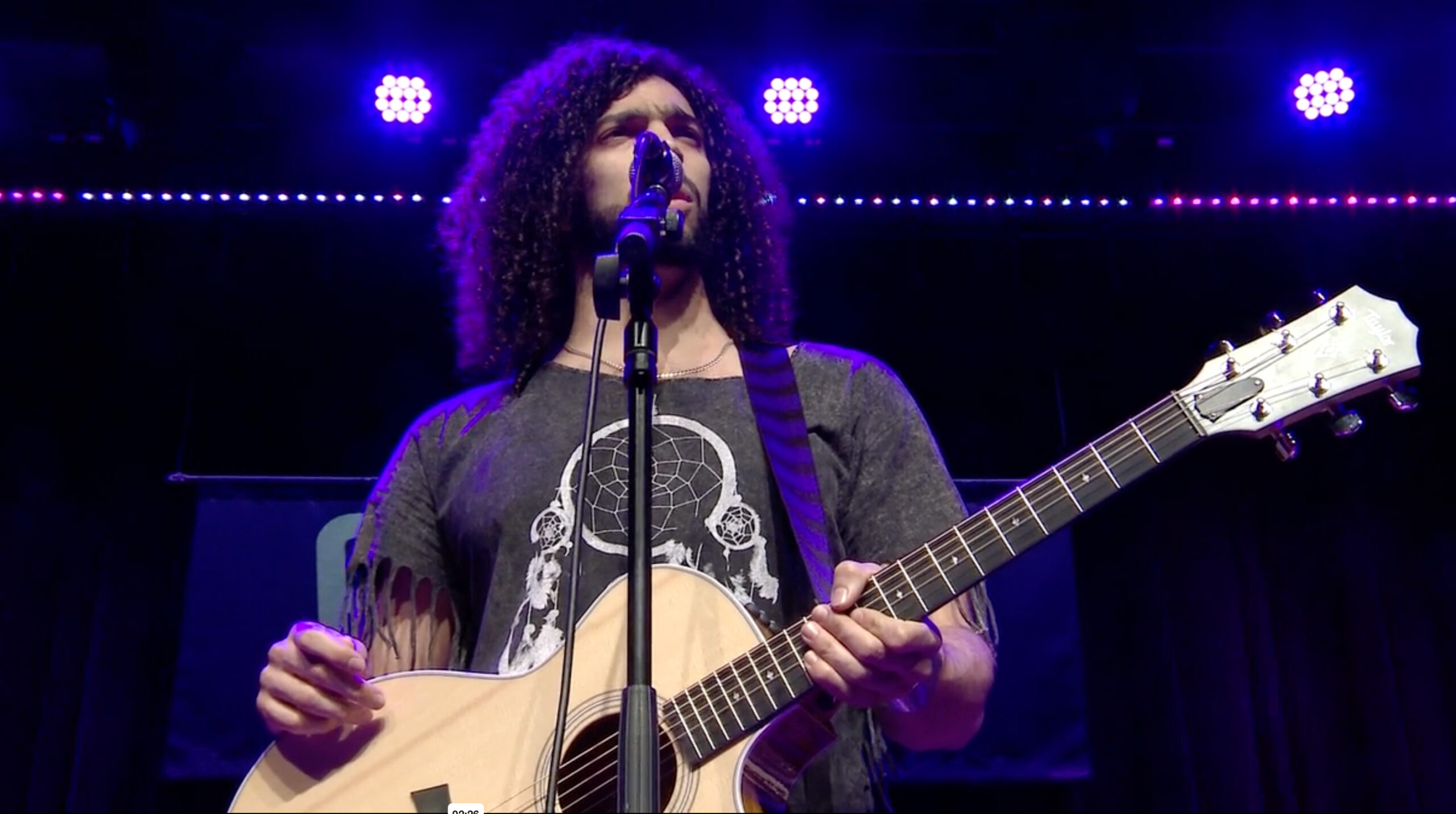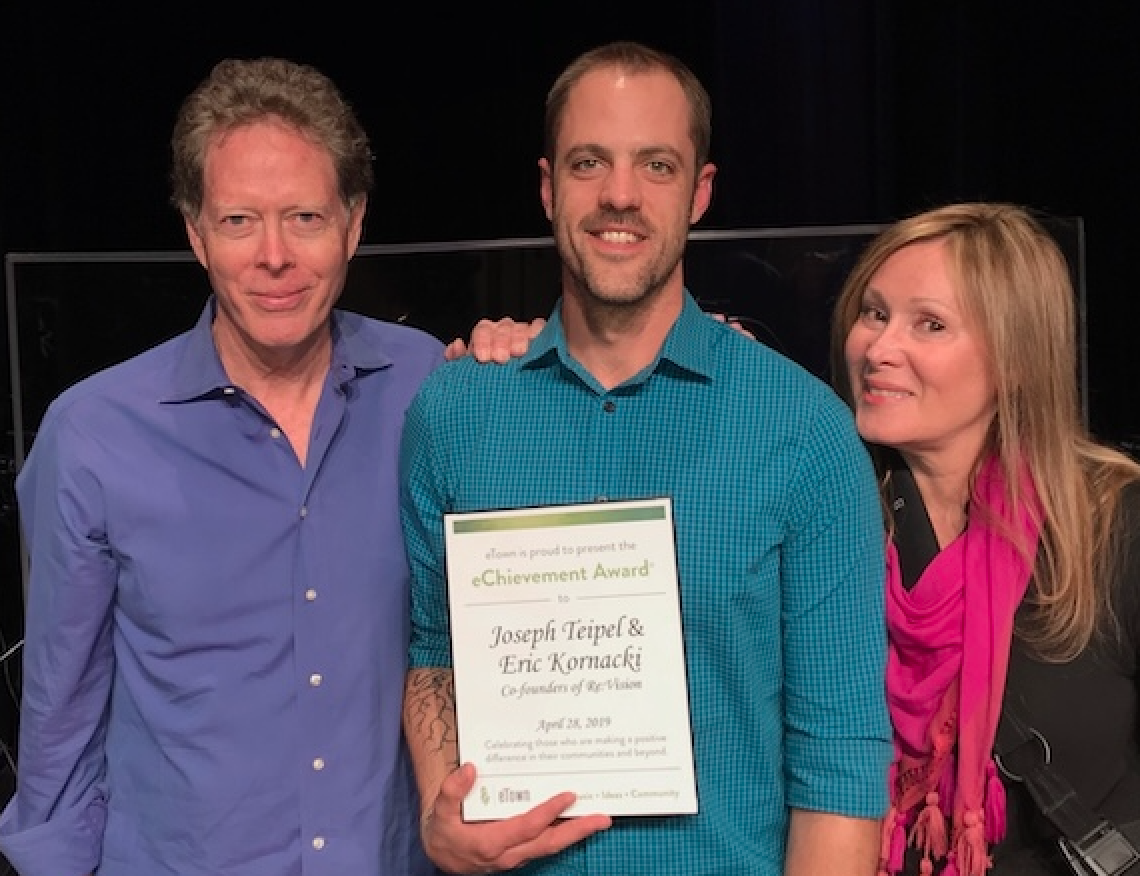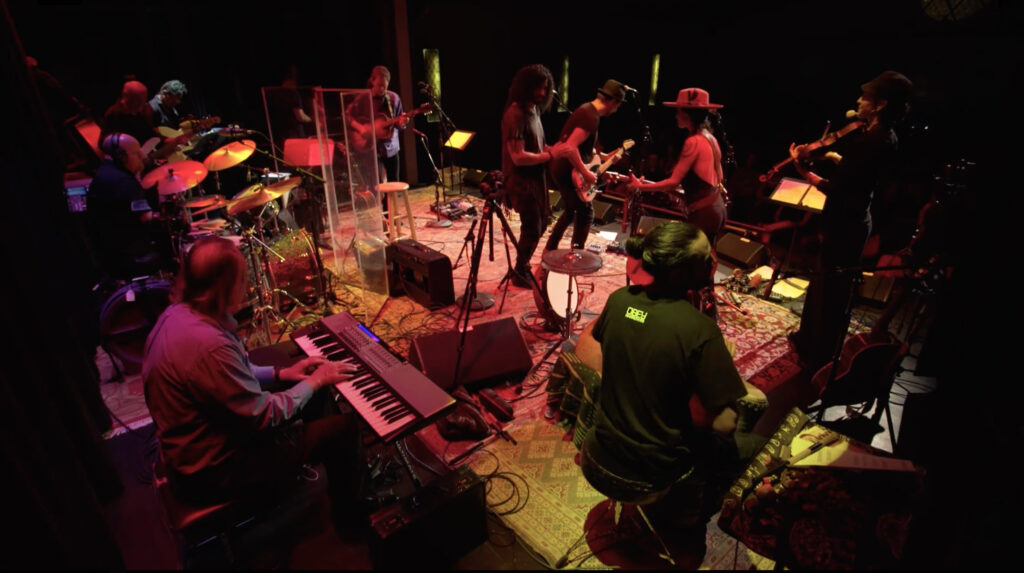This week we revisit a dynamic show featuring two musical acts that are countercultural icons in their own ways and in separate countries. American-born sisters, Leah Song and Chloe Smith, along with their band Rising Appalachia, share their unique brand of “Hillbilly World Music” and chat about how they promote the slow movement in their touring practices. Now exiled in Sweden, Egyptian Ramy Essam travels to eTown to share the songs that led to his becoming the voice of the 2011 Egyptian revolution that overthrew an oppressive leader. Also with us is Joseph Teipel who shares his story about Re:Vision, an organization dedicated to building food independence in the Westwood neighborhood of Denver.
Rising Appalachia

Rising Appalachia is an internationally touring folk ensemble steeped in the soul of the South. It is the brainchild of Atlanta-raised sisters Leah Song and Chloe Smith, rooted in the rich musical traditions of their family and their journey into song as performers, writers, and song catchers. They have that touch that only siblings can have. And now, fresh off the press, they present their first album of cover songs Folk & Anchor, a carefully curated collection of remakes. From Bob Dylan to Hoizer,Erykah Badu to Beyonce, hear these songs in a voice uniquely their own. Recorded at Echo Mountain in Asheville North Carolina, the band has leaned into new renditions of old favorites, showcasing their wide range of style and sound.
Rising Appalachia makes music as a reflection of their times, blending Americana music with lyrics, rhythm and poetry of our times. The band’s unique sound was shaped by Leah and Chloe’s soulful vocals, simple instrumentation, and seamless harmonies, unique to siblings steeped in the multi-generational music of the South. They are joined by a host of incredible musicians who bring their own cultural influences, enriching the blend of Appalachian, Irish, Americana, Latin and world roots music that defines the smooth sound of Rising Appalachia.
Ramy Essam

Ramy’s music is rock with Egyptian flavor and hiphop influences, inspired by hard rock and grunge. He sings in both Egyptian Arabic and English.
Said to be a beacon of uncommon bravery in the Middle East, Ramy Essam exploded into international fame in the Egyptian revolution starting in 2011 as his songs spread like wildfire among the demonstrators. During the height of the uprising, Ramy performed in front of hundres of thousands of people in Tahrir Square and became the voice of the revolution. His song Irhal demanding resignation of then-ruler Hosni Mubarak is referred to as the real anthem of the revolution. Irhal was listed as #3 Song That Changed History by Time Out Magazine.
But fame came with a heavy price. In 2011, Ramy experienced brutal torture and arrests. Since late 2013 his songs were banned, and he was forbidden from performing publicly.
Ramy has lived in exile in Sweden and Finland since 2014, e.g. working in artist residencies hosted by ICORN and Artists At Risk. In addition to touring worldwide and releasing music, Ramy has performed in theatre pieces gaining five stars reviews internationally.
Ramy’s videos have been viewed over 30 million times across different platforms. Lessa Bahinlha has reached nearly 18 million views on YouTube. One of Ramy’s biggest hits is Segn Bel Alwan (feat. Malikah), a song about imprisoned women and gender equality, which has over 8 million views on YouTube.
In 2017, Ramy and PJ Harvey released song The Camp with music video built from footage by photographer Giles Duley. The artists donate all net profits from the track to Beyond Association, a Lebanese NGO which provides access to education and support for displaced children in the Bekaa Valley of Lebanon.
Joseph Teipel

On the episode this week, Joseph Teipel shares his story about Re:Vision – an organization dedicated to building community food independence in the Westwood neighborhood of Denver. Learn more about Joseph and his organization.
